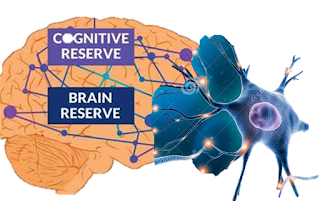Cognitive Reserve and Healthy Aging: Insights from Sardinia's Oldest-Old
Ageing is an intricate journey marked by the ebb and flow of physical and cognitive capacities. As we advance in years, our bodies and minds undergo transformations, both subtle and profound. However, the ageing process is not uniform across individuals, and some extraordinary people manage to defy the odds, living well into their 90s and beyond. These individuals, known as nonagenarians and centenarians, offer a unique window into the mysteries of healthy aging.
Sardinia's Blue Zone is renowned for its extreme longevity and unique characteristics—historical, geographic, social, linguistic, and nutritional. Within this captivating context, authors of a new study administered the Cognitive Reserve Index questionnaire (CRIq) and the short cognitive Esame Neuropsicologico Breve-2 (ENB-2) to 67 participants, all aged between 90 and 105 years old.
The study's findings provide compelling evidence of the positive relationship between cognitive reserve and cognitive performance, even in the oldest-old population. Notably, cognitive reserve emerges as a potent predictor of cognitive efficacy, particularly in executive function tasks.
Cognitive reserve itself is not directly measurable through cognitive tests or assessments. Instead, it is inferred from the differences between an individual's actual cognitive performance and their expected cognitive performance based on factors like education, occupation, and cognitive engagement. Cognitive reserve is believed to be built up over a person's lifetime through activities that challenge and stimulate the brain, such as education, mentally demanding work, engaging in cognitively stimulating leisure activities, and social interactions.
Participants generally demonstrated cognitive abilities well above the norm for individuals over 80 years old. Several individual tests, including Token, Interference memory (at 10 and 30 seconds), TMT-B, Fluency, Abstraction, and Overlapping figures, all of which involve executive function, showed better performance in individuals with higher cognitive reserve. The normative data for the ENB-2 test, however, might have underestimated their cognitive performance, emphasizing the unique cognitive resilience of this population.
As we age, biological changes undoubtedly impact cognitive function, but cognitive reserve continues to play a pivotal role in preserving cognitive health and the ability to function effectively.
REFERENCE
Carta, E., Riccardi, A., Marinetto, S. et al. Over ninety years old: Does high cognitive reserve still help brain efficiency?. Psychological Research (2023). https://doi.org/10.1007/s00426-023-01881-1




Comments
Post a Comment